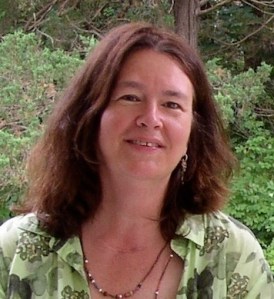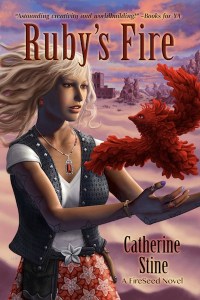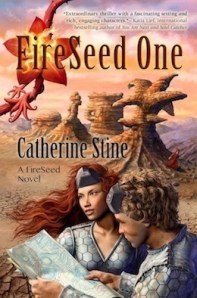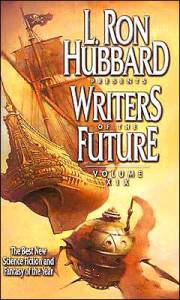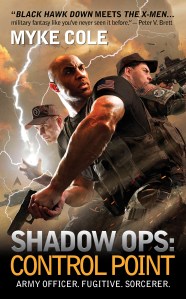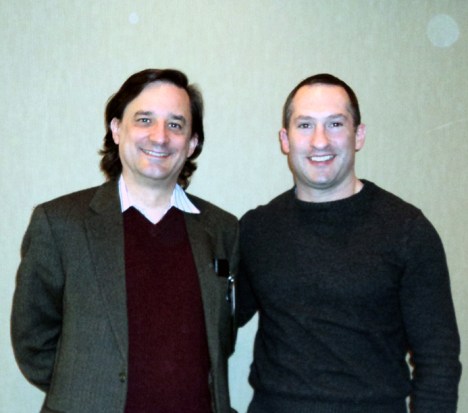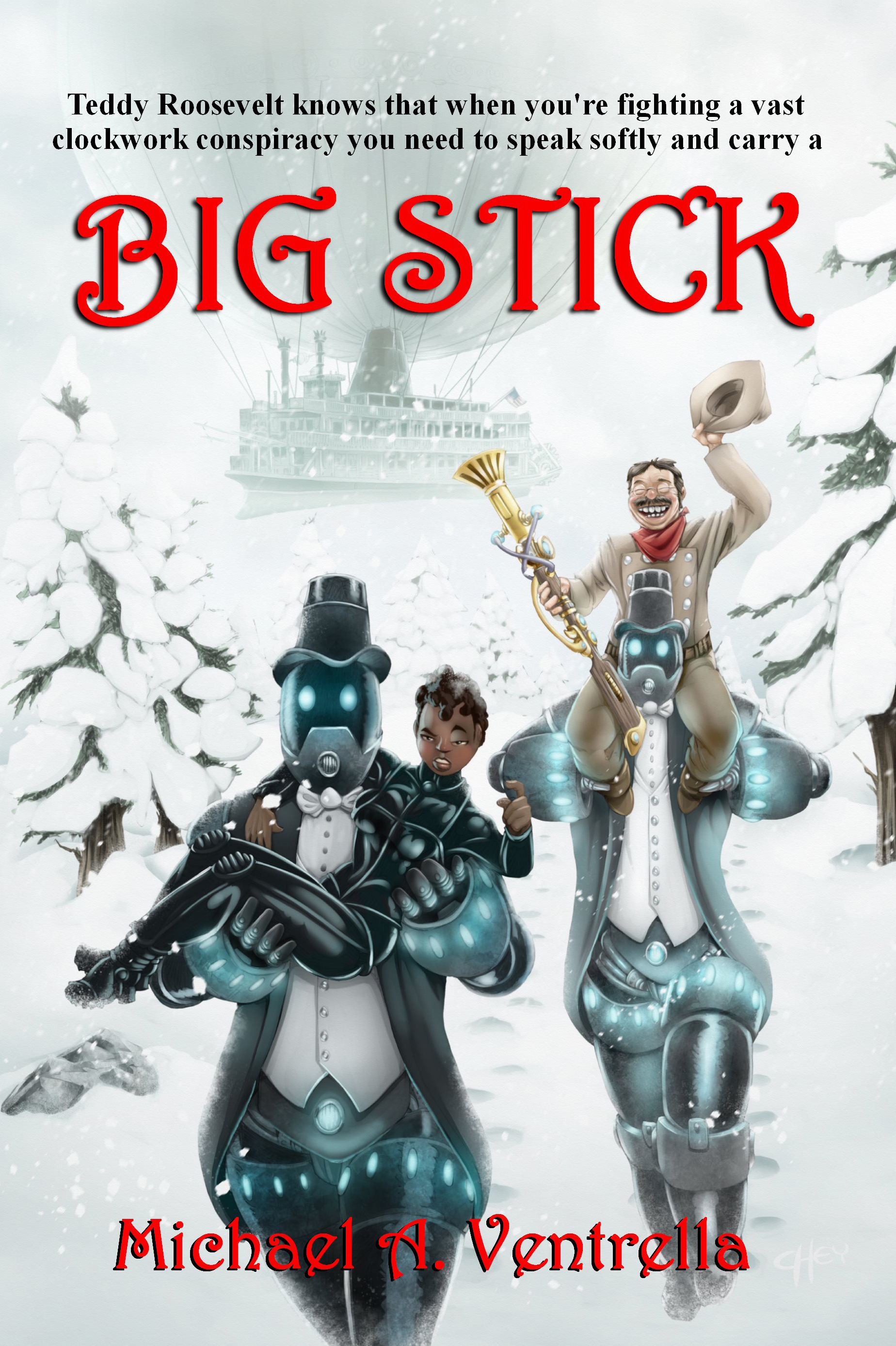MICHAEL A. VENTRELLA: I am pleased to be interviewing NY Times Bestselling Author A.J. Hartley today! A.J. is the international bestselling author of a dozen novels including the mystery/thrillers such as THE MASK OF ATREUS, young adult fantasies like ACT OF WILL, and children’s fantasies like DARWEN ARKWRIGHT AND THE PEREGRINE PACT (which won SIBA’s best YA novel of 2012). 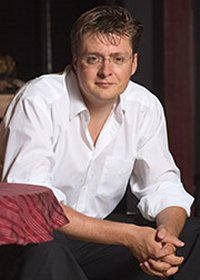 With David Hewson he has written two adaptations of Shakespeare plays as Game of Thrones-esque epic thrillers, the first of which was MACBETH, A NOVEL (audio edition voiced by Alan Cumming), and HAMLET, PRINCE OF DARKNESS. When he’s not writing, A. J. is UNC Charlotte’s Robinson Professor of Shakespeare.
With David Hewson he has written two adaptations of Shakespeare plays as Game of Thrones-esque epic thrillers, the first of which was MACBETH, A NOVEL (audio edition voiced by Alan Cumming), and HAMLET, PRINCE OF DARKNESS. When he’s not writing, A. J. is UNC Charlotte’s Robinson Professor of Shakespeare.
A.J., I just finished reading ACT OF WILL and enjoyed it tremendously! Like my own ARCH ENEMIES, it is a first-person high fantasy story with a punnish title about a cowardly young entertainer with a sarcastic voice who gets thrown into an adventure against his will — so you can see why it appeals to me. (The stories otherwise have nothing in common plot-wise.) What inspired you to write ACT OF WILL?
A.J. HARTLEY: I grew up reading high fantasy—Tolkien, Le Guin, Lewis, and the like — and loved it all, but as my reading tastes expanded, I started to crave fantasy which was rooted in some version of reality and didn’t take itself too seriously. I’m a big fan of Terry Pratchett because I think he proves that fantasy with a comic edge needn’t be “light” and can be as serious as more obviously ponderous works. I like that. I’ve always been a devotee of writing which is fun, outrageously populist, deliberately and self-consciously “genre” but still rich and complex and layered. Like Shakespeare, a master genre writer if ever there was one. ACT OF WILL grew out of many of these impulses: high fantasy with an attitude and a strong sense of character voice, swords and sorcery with a little Salinger thrown in.
VENTRELLA: It seems to have gone through a number of different printings with different publishers. Can you share that story with us?
HARTLEY: From the first time I submitted the manuscript, I ran into the familiar problem of publishers saying something like “we love it, but we don’t know what it is.” In other words, it was considered a hybrid in terms of genre. They didn’t know what shelf to put it on. It took me twenty years to sell it. Literally. By then the market had evolved so that smart-mouth heroes and a pointed absence of dwarves and elves were no longer considered antithetical to fantasy.
Even so, when the book came out from Tor, people weren’t sure how to market it. The original hardback cover (which I actually really liked) didn’t look like a fantasy novel at all, and it certainly didn’t suggest its young adult protagonist. Both novels (ACT OF WILL was followed by WILL POWER) were very well reviewed (the second book made Kirkus Top ten for the year –- and Kirkus are notoriously hard to please!) but they didn’t really sell. 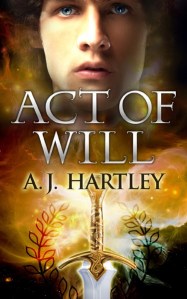
When they went into paperback, Tor went with more conventional fantasy style covers, but that didn’t solve the problem. Simply put, people who read them liked them, but not enough people read them. They eventually went out of print and I self-published them with the current, more aggressively YA covers. Interestingly, these covers (stylishly designed by a wonderful designer called Asha Hossain) have really touched a chord with readers and book sellers. They play up the drama of the stories, rather than the slightly tongue in cheek tone, but they fit the books very well indeed.
VENTRELLA: ACT OF WILL takes place in a sort of alternate middle ages, in that there are some things that are definitely relatable to the real medieval world (the way women were treated, men playing female parts in plays, etc.) yet without using any real places (and of course, adding some magic to it). How did you decide what to use and what not to use? In other words, how did you go about developing the world?
HARTLEY: To be honest, Michael, I didn’t. I just made it up as I went along, doing remarkably little of the kind of systematic world building I would do now. The world of the books is an odd mixture of my historical work as a Shakespearean, my travels all over the world (there are moments which — at least to me — evoke India, for example, where I had been right before the final version came into focus), and the voice is clearly modern, without being so contemporary that it would date quickly. What the world contains and doesn’t was determined by the story and the character, particularly the voice of the character.
VENTRELLA: What makes a novel Young Adult? When writing one, how do you change your style (if at all)?
HARTLEY: Most importantly, it’s about the age of the protagonist, and therefore about confronting adulthood in all its aspects. Beyond that, a young adult novel can do anything you might do in an adult novel. YA is defined by the age of the readership rather than by genre, of course, which means that there’s a lot of different kinds of stories within the bracket. Some are virtually indistinguishable from a middle grades novel, while others push the envelope as far as possible in matters of sex, violence, subject matter and vocabulary. So long as you are consistent and clear from the outset as to what you are writing, you can do pretty much what you want. For me, style has less to do with age group as it is to do with the sub genre or style of the story and I never consciously self-censer or simplify.
VENTRELLA: What are your upcoming projects?
HARTLEY: My next publication will be the HAMLET, PRINCE OF DARKNESS (co-written with David Hewson) performed by Richard Armitage (Thorin Oakenshield in the Hobbit movies) which comes out May 20th. I think that will get a lot of attention.  After that, I’m not sure. I’m mid stream on a couple of YA projects, but they aren’t done yet.
After that, I’m not sure. I’m mid stream on a couple of YA projects, but they aren’t done yet.
VENTRELLA: Of which of your fiction books are you most proud and why?
HARTLEY: This will sound like a dodge, but it’s not. I’m always proud of my work when I first finish it and wouldn’t want it published if I wasn’t, so each project tends to have a special place in my head/heart. Each book has something about it I’m proud of. In ACT OF WILL, it’s voice. In WILL POWER it’s about pulling off a socio-political critique of the genre from within.
VENTRELLA: What should someone read first if they want to get to know your work?
HARTLEY: Depends what they like. If they like YA or adult fantasy, ACT OF WILL. For something a little more Harry Potter-esque, I’d recommend DARWEN ARKWRIGHT AND THE PEREGRINE PACT. For historically rooted thrillers, MASK OF ATREUS. For Shakespeare fans, the Macbeth or Hamlet.
VENTRELLA: I see from your CV that you were studying for your doctorate at Boston University around the same time I was graduating from law school and being a public defender there. Maybe we even rode the T together from Brighton. Why did you leave?
HARTLEY: I left after completing my Ph.D and getting my first academic job in Georgia.
VENTRELLA: Much of your work is scholarly. How have you found your styles compare when writing fiction and nonfiction?
HARTLEY: Apples and oranges. There may be a little bleed over in terms of ideas which inform both, but academic writing is an entirely different beast, from writing fiction. Scholarly books are much slower to produce for me, much cagier, much more research-driven and hyper aware of what other people have said. I can do the first draft of a novel in two months. My performance history of Julius Caesar took me almost six years.
VENTRELLA: I’ve always wanted to ask a Shakespeare expert this: Of the hundreds of Shakespeare movies that have been released, which one(s) is/are your favorite(s)? And which just made you scream at how terrible they were?
HARTLEY: I can usually find something of value in most half-way competent films or stagings because I’m looking to be shown something new from a production, not a “correct” interpretation of the play, which I don’t believe exists. We do theatre/film to generate a new art object which grows out of the (necessarily partial) play text, not to somehow broadcast the original in some kind of unmediated way. 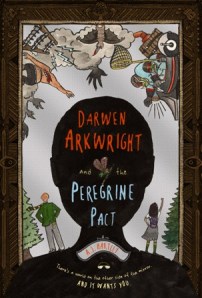 That’s aid, I do, of course, have preferences. Of recent efforts, I like the Loncraine Richard III with Ian McKellan as an early twentieth century fascist, Branaugh’s Henry V, the Goold Macbeth with Patrick Stewart as a Stalinist tyrant, the filmed stage version of Greg Doran’s Hamlet starring David Tennant, and Joss Whedon’s wonderfully intimate Much Ado.
That’s aid, I do, of course, have preferences. Of recent efforts, I like the Loncraine Richard III with Ian McKellan as an early twentieth century fascist, Branaugh’s Henry V, the Goold Macbeth with Patrick Stewart as a Stalinist tyrant, the filmed stage version of Greg Doran’s Hamlet starring David Tennant, and Joss Whedon’s wonderfully intimate Much Ado.
VENTRELLA: How do you deal with the conspiracy nuts who claim Shakespeare never wrote his plays?
HARTLEY: Impatiently.
VENTRELLA: Shakespeare is often cited by authors who point out that what makes a good story is not originality, but the way the story is told. Do you agree?
HARTLEY: Well, it’s sort of a false binary, isn’t it? Shakespeare didn’t generally originate plots, but the stories have his unmistakable stamp which goes beyond sentence-level utterance. I think he proves that a gifted author can own and refresh a story people thought they knew
VENTRELLA: How much of writing is innate? In other words, do you believe there are just some people who are born storytellers but simply need to learn technique? Or can anyone become a good writer?
HARTLEY: Hmmm… I believe that writing is generally a fairly self-selecting process, in that you need to love stories and words and work to be good at it, but I see plenty of writing from people who have been at it a while which isn’t that good, so no, I don’t believe anyone can do it. There’s a lot you can learn—from classes, from studying other people’s work, and from just doing it—and I think that most people can achieve a basic competence in getting a story down coherently. But writing really well, with power and subtlety, with an eye for character and an ear for voice? No. I don’t think that can simply be learned by anyone.
VENTRELLA: Do you think readers want to read about “believable” characters or do they really want characters that are “larger than life” in some way?
HARTLEY: I think that’s a genre question. Most people who read thrillers and fantasy novels want big drama and larger than life characters which take them out of their conventional reality. For people who read realist literary fiction, generally that’s not true. I like something in between the two.
VENTRELLA: What is your writing process? Do you outline heavily or just jump right in, for instance?
HARTLEY: I outline briefly and loosely — 10-15 pages that sets up the story, main characters, world, key scenes. The book, however, is in the details. Execution is all.  But the outline helps me to start with a clear sense of what the book is going to be so that I don’t wander for fifty pages trying to figure out what the story is, what drives it. You need a special gift for self-denying and brutal editing to write without an outline, I think, and most writers don’t have it. It can take me months, even years, to see what a book needs in terms of cutting. Outlines help get me there faster.
But the outline helps me to start with a clear sense of what the book is going to be so that I don’t wander for fifty pages trying to figure out what the story is, what drives it. You need a special gift for self-denying and brutal editing to write without an outline, I think, and most writers don’t have it. It can take me months, even years, to see what a book needs in terms of cutting. Outlines help get me there faster.
VENTRELLA: Do you find yourself creating a plot first, a character first, or a setting first? What gets your story idea going?
HARTLEY: Varies from book to book. ACT OF WILL, for instance, began with character voice. Plot came later. MASK OF ATREUS began with two intersecting plot ideas. DARWEN began with a way of reinventing the cross-over-into-a-fantasy-world I first encountered in The Lion, the Witch and the Wardrobe. WILL POWER came from an idea about what I found frustrating about some conventional fantasy…
VENTRELLA: Writers are told to “write what you know.” What does this mean to you?
HARTLEY: Usually, it means, write what you value, what you want to read, what you care about. Then it means, make sure you know what you need to pull it off.
VENTRELLA: What do you do to avoid “info dumps”?
HARTLEY: Cut them out and then find ways to reveal the information in another way! Unhelpful, I know. I think it helps to think of how movies handle the problem, usually visually.
VENTRELLA: Do you think it is important to start by trying to sell short stories or should a beginning author jump right in with a novel?
HARTLEY: I’ve never been a short story writer. I’ve done a few recently, but I think it’s a very different skill from writing novels, and for the most part I don’t they necessarily transfer that helpfully. If you want to be a novelist, write novels.
VENTRELLA: Do you think short stories are harder to write than novels?
For me they are, to do them well as genre fiction. They are, paradoxically, easier to pull off as literary fiction, I think, because they don’t have to have the pesky necessity of plot and event. Most genre short stories read—to me—like unfinished novels or, worse, mere episodes.
VENTRELLA: What advice do you have to people trying to find an agent?
HARTLEY: Write a really good book. 
VENTRELLA: How do you promote your work?
HARTLEY: Badly. Minimally. Irritably.
VENTRELLA: We’ve met at a few science fiction conventions. Do you find attending these to be a useful activity?
HARTLEY: I do, and find them useful to a point. They can help you answer real questions about the craft and the business, but their real value is in making you feel part of a community. Writing can be very isolating, and it is good to know other people are in the same boat. And sometimes they can produce connections which are directly useful. BUT, some people treat the discourse around writing as a substitute for writing itself. It’s not. Never will be.
VENTRELLA: What’s your opinion on self-publishing?
HARTLEY: It can be a very useful tool for people who already have a fan base, or for people who just want to make their work available but aren’t looking to make a lot of money off it. Some people do make money, of course, but I don’t think they are representative and for many the riches some self-pub promoters tout will never materialize. I also think self-publishing requires a degree of self-promotion most people are not good at, and which takes time away from the development and production of their actual craft: writing. Self-publishing can be a nice extra string to your bow, or a way to find an outlet as you work, but I would still recommend traditional publishing to most writers. Sometimes—not always, of course—but perhaps more often than we usually admit, rejection from publishers is indicative of the fact that the work isn’t ready. Publishing it in any form can do you more harm than good in the long term. I wrote lots of books that were rejected before I had one accepted, and I thank the stars that I didn’t opt to self-publish them. I might not have been able to see it at the time, but I can now. They weren’t ready. They weren’t good enough.
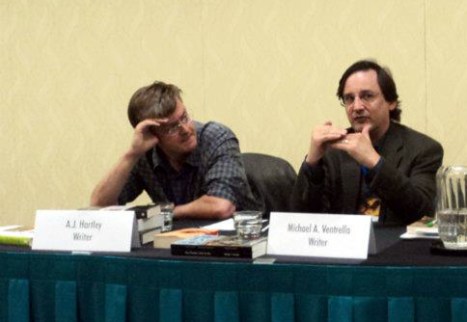
Ravencon 2012
Filed under: writing | Tagged: A. J. Hartley, Arch Enemies, convention, fantasy world creation, new writers, promoting yourself, publishing house, reluctant hero, self-publishing, short stories, Write what you know, writing advice | Leave a comment »



 IN: I wrote a manuscript (my 3rd actually) and shared it with my friend who encouraged me to publish. My first story was FOREVER MY GIRL, which is slated to start production for the big screen this year.
IN: I wrote a manuscript (my 3rd actually) and shared it with my friend who encouraged me to publish. My first story was FOREVER MY GIRL, which is slated to start production for the big screen this year.




















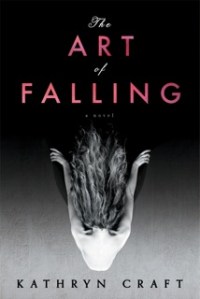


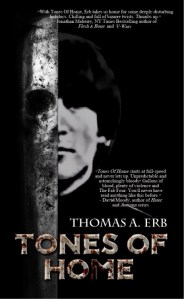


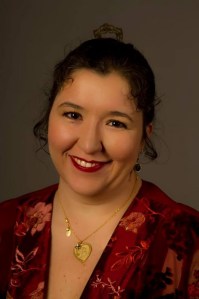
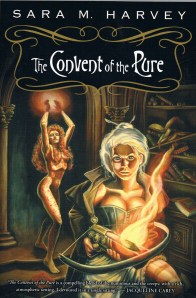
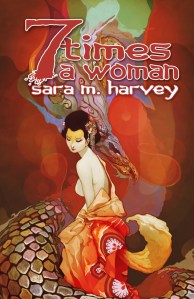
![Pageflex Persona [document: PRS0000039_00075]](https://michaelaventrella.com/wp-content/uploads/2013/08/mountain-dead.jpg?w=203&h=300)

